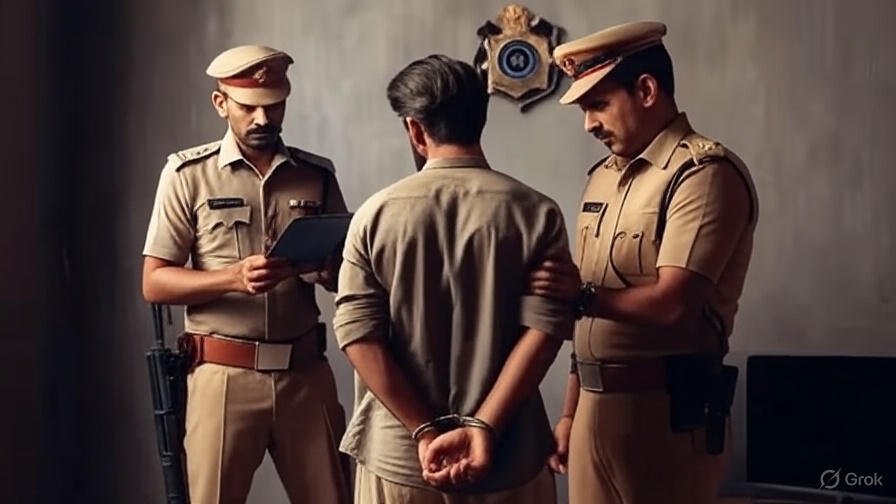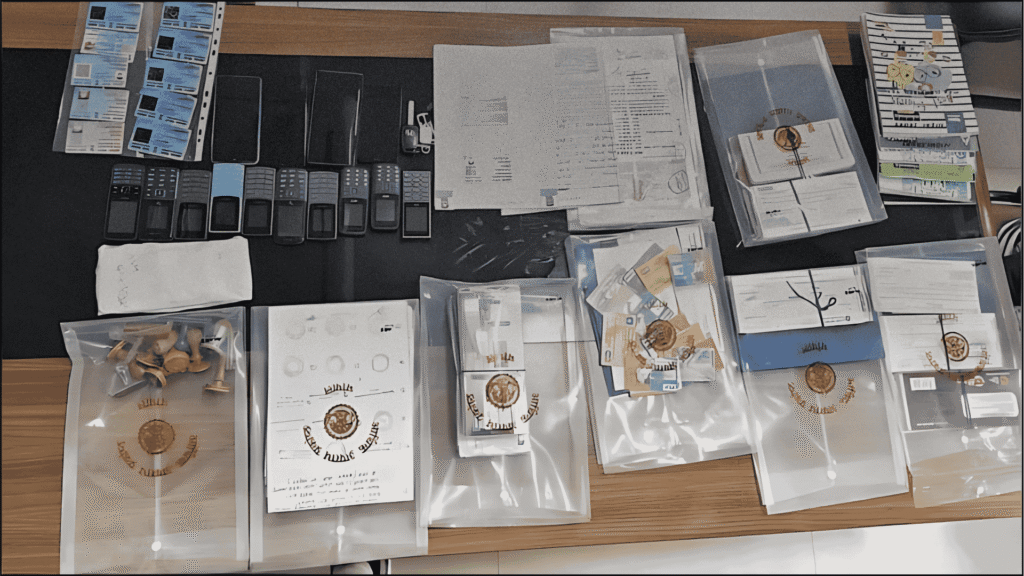
In a scene straight out of a crime drama, Delhi’s notorious gangster Amit alias Dabang, a key figure in the infamous Tillu Tajpuriya gang, was granted a rare five-hour parole on July 4, 2025, to tie the knot in Narela’s Tajpur village. The wedding, held under unprecedented police security, has sparked widespread curiosity and debate about the intersection of crime, justice, and personal milestones in India’s capital. This blog delves into the details of this extraordinary event, Amit’s criminal background, and the logistical complexities of orchestrating a high-security wedding for a jailed gangster.
Who is Amit alias Dabang?

Amit, known by his alias Dabang, is no ordinary figure in Delhi’s underworld. Once considered the right-hand man of the slain gangster Sunil Balyan, alias Tillu Tajpuriya, Amit is believed to have taken over the operations of the Tillu Tajpuriya gang after Tajpuriya’s brutal murder inside Tihar Jail in May 2023, allegedly by members of the rival Gogi gang. The Tillu Tajpuriya gang has long been a dominant force in Delhi’s criminal landscape, engaging in activities ranging from extortion to contract killings, often clashing with rival factions like the Gogi gang.
Amit’s criminal record is extensive, with charges under the stringent Maharashtra Control of Organised Crime Act (MCOCA). His notoriety led the Delhi Police to announce a ₹2 lakh reward for information leading to his arrest in 2020. Despite his incarceration in Tihar Jail, Amit remains a significant figure in Delhi’s organized crime network, making his brief release for a personal event all the more remarkable.
The Wedding: A High-Security Affair
On July 4, 2025, Amit was escorted from Tihar Jail directly to the wedding venue in Tajpur village, a known stronghold of the Tillu Tajpuriya gang. The event was anything but typical, with approximately 250 police personnel, including SWAT teams and Crime Branch officers, deployed to ensure safety and prevent any untoward incidents. The area was under tight surveillance, with CCTV cameras and drones monitoring every corner of the venue. This level of security underscores the risks associated with granting parole to a high-profile criminal like Amit, especially in a region where gang rivalries run deep.
The bride, identified as Parul, a college student from Rajasthan, added another layer of intrigue to the story. While details about their relationship remain scarce, reports suggest it was a love marriage, a surprising twist given Amit’s criminal persona and incarceration. The wedding took place under strict supervision, with Amit’s movements closely monitored to ensure compliance with parole conditions. After the five-hour ceremony, he was promptly returned to Tihar Jail, leaving behind a spectacle that captured the attention of media and locals alike.
The Logistics of a Gangster’s Parole
Granting parole to a notorious gangster is a complex process, balancing humanitarian considerations with public safety. In Amit’s case, the Delhi court approved the five-hour parole after rigorous scrutiny, likely factoring in his right to marry while weighing the potential risks. The decision follows a precedent set by other high-profile gangsters, such as Neeraj Bawana, who was granted a day’s parole to visit his ailing wife in July 2025, and Sandeep alias Kala Jathedi, who received parole for his wedding in March 2024 and later for medical reasons.
The heavy security measures reflect the Delhi Police’s awareness of the volatile gang dynamics in Narela. Tajpur village, a stronghold of the Tillu Tajpuriya gang, is a hotspot for gang-related activities, making it a high-risk location. The deployment of drones, CCTV, and a large police contingent was a proactive step to deter any rival gang interference or attempts to exploit Amit’s temporary release.
Public Reaction and Ethical Questions
The news of Amit’s parole wedding sparked varied reactions on social media and in the public sphere. Some viewed it as a progressive move, allowing a prisoner to exercise a fundamental right, while others criticized the decision, arguing that granting parole to a dangerous criminal sets a risky precedent. Posts on X highlighted the event’s dramatic nature, with users marveling at the “filmy” logistics of a gangster’s wedding under police escort. However, these posts also reflect polarized sentiments, with some questioning why such leniency is extended to individuals with serious criminal charges.
The ethical dilemma lies in balancing human rights with public safety. While marriage is a deeply personal milestone, the logistics of ensuring security for such events strain police resources and raise questions about fairness. Why are some gangsters granted parole for personal events while others are not? The answer often lies in judicial discretion and the specifics of each case, but the lack of transparency fuels public skepticism.
The Bigger Picture: Crime and Society in Delhi
Amit’s wedding is a microcosm of Delhi’s complex relationship with organized crime. The city’s underworld, marked by fierce gang rivalries, continues to challenge law enforcement. The Tillu Tajpuriya-Gogi gang feud, for instance, has led to numerous violent incidents, including Tajpuriya’s murder in Tihar Jail. Amit’s rise to prominence within the gang highlights the resilience of these criminal networks, even under intense police scrutiny.
This event also sheds light on the personal lives of those involved in crime. Despite his criminal record, Amit’s decision to marry suggests a desire for normalcy, however fleeting. It prompts us to consider the human side of those labeled as “gangsters” and the societal factors that shape their paths.
Conclusion
The wedding of Amit alias Dabang on a five-hour parole is a fascinating intersection of crime, justice, and personal life. Orchestrated under extraordinary security measures, it reflects the challenges of managing high-profile criminals in a city grappling with organized crime. While the event was a personal milestone for Amit and Parul, it also reignited debates about parole policies, public safety, and the human rights of prisoners. As Delhi’s underworld continues to evolve, stories like this remind us of the complex interplay between law, society, and individual aspirations.


